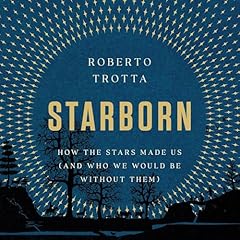
The History of Philosophy
Failed to add items
Sorry, we are unable to add the item because your shopping cart is already at capacity.
Add to Cart failed.
Please try again later
Add to Wish List failed.
Please try again later
Remove from wishlist failed.
Please try again later
Adding to library failed
Please try again
Follow podcast failed
Please try again
Unfollow podcast failed
Please try again
 Prime members: New to Audible?
Prime members: New to Audible?Get 2 free audiobooks during trial.
Pick 1 audiobook a month from our unmatched collection.
Unlimited access to our all-you-can listen catalog of 150K+ audiobooks and podcasts.
Access exclusive sales and deals.
Premium Plus auto-renews for $14.95/mo after 30 days. Cancel anytime.
Buy for $29.25
-
Narrated by:
-
Neil Gardner
-
By:
-
A. C. Grayling
The first authoritative and accessible single-volume history of philosophy to cover both Western and Eastern traditions, from one of the world’s most eminent thinkers
The story of philosophy is an epic tale, spanning civilizations and continents. It explores some of the most creative minds in history. But not since the long-popular classic by Bertrand Russell, A History of Western Philosophy, published in 1945, has there been a comprehensive and entertaining single-volume history of this great, intellectual, world-shaping journey.
With characteristic clarity and elegance, A. C. Grayling takes the reader from the age of the Buddha, Confucius, and Socrates through Christianity’s capture of the European mind, from the Renaissance and Enlightenment on to Mill, Nietzsche, Sartre and, finally, philosophy today. Surveying in tandem the great philosophical traditions of India, China, and the Persian-Arabic world, and astonishing in its range and accessibility, Grayling’s The History of Philosophy is destined to be a landmark work.
Listeners also enjoyed...




















People who viewed this also viewed...


















It is a very good reference for the student, but provides plenty to the practitioner.
It proves that philosophy is a human process, granted in different intensity or maturity or orientation, but it is the way to answer those “great questions”.
Well-rounded book of knowledge
Something went wrong. Please try again in a few minutes.
I would have enjoyed it more if the bias towards Analytic philosophy wouldn't be so evident, as only a cursory overview of certain Continental thinkers was evident.
Good overall
Something went wrong. Please try again in a few minutes.
For some reason, chapter divisions are hours apart, split only by broad era unlike in Russell, where they are split by thinker. Almost the entire 20th century is split into only two Audible chapters, which makes it very difficult to find someone in particular.
Still, it's an excellent book and valuable especially where it contradicts or differs from Russell. Philosophy should have no received wisdom, and the more variation in good books we have, the better.
Great Follow-Up to Russell
Something went wrong. Please try again in a few minutes.
A Phenomenal Overview
Something went wrong. Please try again in a few minutes.
Exactly as promised
Something went wrong. Please try again in a few minutes.


